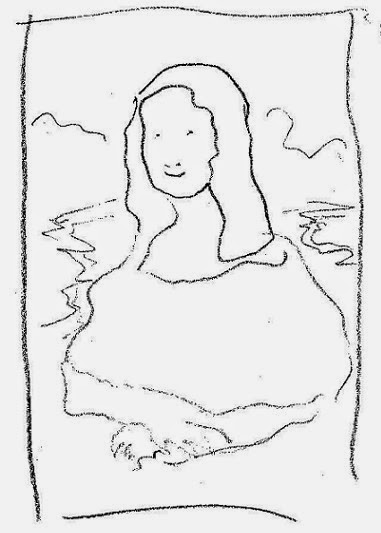When I was a student at Michigan State University I took a
poetry-writing course from Diane Wakoski, who was considered one of the hot, avant-garde
poets in America. I was impressed by her strong feminist philosophy, which is
probably best summed up by the title of her collection from 1973, Dancing on the Grave of a Son of a Bitch.
The students wrote poetry and she did critiques, and in
class we discussed both student poetry and professional poetry (that term
sounds so weird). One of the students was a guy who tried to make his stanzas
rhyme, but he wasn't very good at it. Besides, rhyming poetry was so nineteenth-century.
One day this student stood up and read a new poem, which indicated
that he realized not everybody thought his poetry was good, but he thought it was good, and that's what
mattered.
[This is a great portrait.]
[Right?]
Ms Wakoski was a quiet, tolerant woman, but evidently she
had reached the end of her rope. She sighed, then quietly but clearly said,
"This is what people who don't read poetry think poetry is like."
There was just like this thud in the room. The student had
no reply, and I'm not sure he even realized the size of the cannonball that had
just been fired into him.
I sat there stunned at Ms Wakoski's frankness, especially
because the student was the only African-American in the class. I'd have
expected her to go easy on him, in the spirit of affirmative action, or white-liberal
guilt, or whatever you might call it.
That moment has stuck with me, as I'm frequently called on
to critique the work of aspiring writers. Ms Wakoski's comment to that student
was not constructive. It was dismissive. It was honest.
Telling the truth is important, but we can only tell the
truth as we see it. And there, right there, we see the little shadow of
relativism. If not everybody can agree on uniform standards of quality in art,
does that mean all artistic products are equally good?
It does not.
While we can strive to give criticism constructively, all
artists are, or should be, definers and defenders of standards. Admittedly it's
an impossible task, and we can disagree on what those standards are, but by God
we must know our own standards, and by double-God we must first and foremost
hold ourselves firmly to them. Hopefully, as we grow and mature, our artistic
standards get ever more refined.
In this dumbed-down world, is there anything more important?
[Image note: The Mona Lisa by ES]
Tell us what you think! To post your ideas / comments, all
of which I read and try to respond to, click below where it says, 'No
Comments,' or '2 Comments,' or whatever.
If you'd like to receive this blog automatically as an email,
look to the right, above my bio, and subscribe there. Thanks for looking in.


Thank you for this! I appreciate having someone willing to wade into this land mine-pocked territory, especially for contemporary fiction. There doesn't seem to be one, but dozens of randomly contrived standards, which make it nearly impossible for writers trying to learn "craft".
ReplyDeleteNot only is writing difficult, but editing and critiquing present challenges because there's no standard.
I appreciate your bravery...
jeanne
Hey Jeanne, you're welcome. For aspiring writers, good advice is 'Read the greats with fine attention.' When critiquing, I've almost entirely stopped saying qualifiers like 'In my opinion,' etc. Have you read BR Myers's 'A Reader's Manifesto'? He really slaps around the contemporaries.
DeleteI don't hesitate to offer critiques, as in a writing group, and I do it constructively, with education and support in mind. However, when a friend finishes a whole book and then wants me to blurb it, I think it's too late to venture that negative of an opinion.
ReplyDeleteI agree.
Delete